Life in the Bo-Kaap: A living museum of South African history
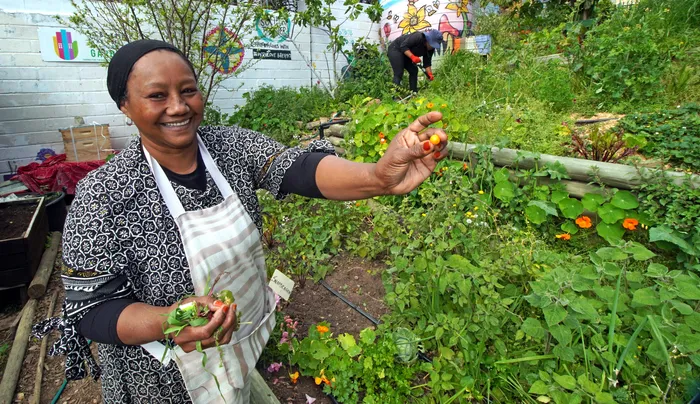
Abieda Charles said that growing up in the area was amazing, as they were surrounded by a “mengelmoes” (hodgepodge) of cultures. Her grandmother was of Arab descent, and her grandfather was of Javanese descent, an ethnic group native to central and eastern Java and Indonesia.
Image: Ian Landsberg/Independent Newspapers
The picturesque community of Bo-Kaap in Cape Town remains one of the richest and vibrant areas, with its heritage tied deep into the identity of the area.
The Bo-Kaap's identity is rooted in the history of the Cape's enslaved and free black populations, many of whom were brought from Southeast Asia, India and Africa.
Some were skilled artisans, craftsmen, and traders who helped build the city and this legacy is evident in the area's distinct architecture, with its Cape Dutch and Cape Georgian styles, and in the preservation of Islamic traditions.
Sheikh Dawood Terblanche, chairperson of the Bo-Kaap Civic and Ratepayers Association (BKCRA) described the area as a living museum of South African history, showcasing the resilience and cultural contributions of its people.
“The brightly coloured houses, often cited as a symbol of freedom and expression, are a visual representation of this vibrant history.
“Growing up in the Bo-Kaap is a special and deeply meaningful experience. It means being part of a community with a strong sense of identity, shaped by centuries of history and culture.
“The area, originally known as the ‘Malay Quarter’, is the oldest surviving residential neighbourhood in Cape Town and is strongly associated with the development of Islam in the Cape. It's a place where families have lived for generations, creating a tight-knit and supportive environment with a unique ‘small town’ feel within a major city,” he said.
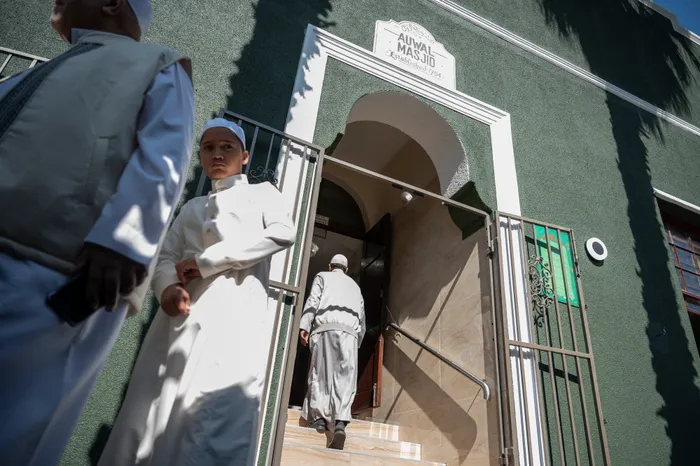
The historic Auwal Masjid in the Bo-Kaap is located near the approved hotel development.
Image: Armand Hough/Independent Newspapers
Abieda Charles, who runs the Bo-Kaap Helpers Garden, said that she was born in the area 64 years ago, and that she was one of 10 children.
“In those years, they didn't have access to purchase a home, so the maternal grandmother and grandfather offered them a room in a two-bedroom apartment, with the first baby already on its way. The six of us were born in that same room.
“We were born in a flat, which was a council flat and my grandfather urged my dad, when he married my mom, to purchase an erf (a plot of land). My dad never worked in South Africa. Our dad was a furnace builder, he was a specialist in building gold furnaces, which melt gold. So he was called out wherever he was needed, for most of our lives.”
She said that it was in that small council flat, which they shared with her aunts and uncles, that their rich heritage of sharing and caring first started.
Charles added that growing up in the area was amazing, as they were surrounded by a “mengelmoes” (hodgepodge) of cultures. Her grandmother was of Arab descent, and her grandfather was of Javanese descent, an ethnic group native to central and eastern Java and Indonesia.
“Our grandmom was a very innovative and open-minded older person, so we had shows, we had stage productions in the flat. My grandmom was a seamstress, but she worked at home, and she used to make doll dresses for the company. She would make all the costumes, and all of my mom and her three siblings were nurses.
“Her younger sister loved the gay guys, the queer guys, the guys coming from disadvantaged backgrounds and the ostracised, those kinds (that were) pushed away, so our home was open to anyone, because of my grandmother's open-mindedness.
“Every Friday, we would have a ball because all the gay guys would be coming and they would have these hairdressing sessions, and it was an amazing childhood, even though I was born in the depression, 1961, but we never felt it. That was the amazing part,” Charles said.
“Many people have different stories, but I cannot tell a different story because it was amazing. We had a very good life.”
Charles said life became a little tough when they moved from the council flats to the other residential side of the Bo-Kaap as the classism came through, and she struggled with the mould that was expected of them.
“Even though we had a very busy home because the properties were huge, there was a lot of playfulness in the home, but there was a lot of pretension (with the neighbours).”
Charles explained that it was always her wish to be involved in a community garden, as her mother had a huge rose garden and the vegetables that she was not allowed to touch when younger, and after she took early retirement, at 52, it allowed her to get involved with the now-called Bo-Kaap Helpers Garden.
“I was given something greater, and that was to manage the community garden, which I'm super grateful for because it's been an amazing journey. The transition from corporate to growing food, is so rewarding, it is so amazing, and I'm so grateful for the opportunity.”
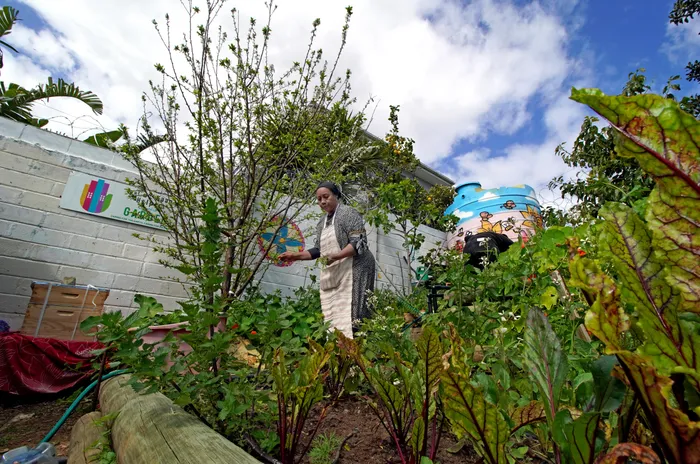
Abieda Charles, project manager of the Bo-Kaap Helpers Garden.
Image: Ian Landsberg/Independent Newspapers
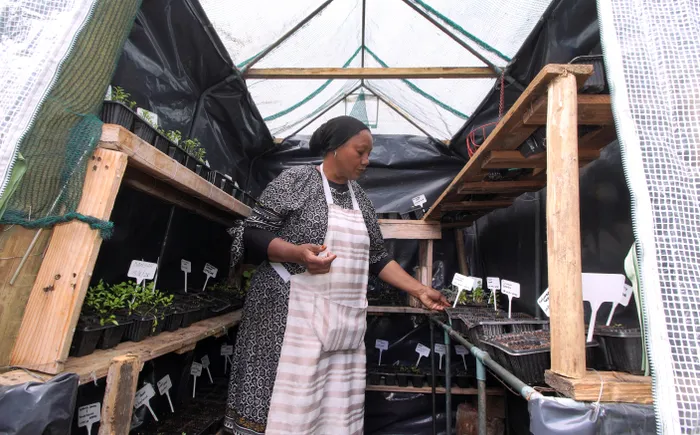
Charles said that things were a little tough when they moved from the council flats to the other residential side of the Bo-Kaap as the classism came through.
Image: Ian Landsberg/Independent Newspapers
Terblanche added that in the Bo-Kaap, they have many traditions associated with the area, from its Cape Malay cuisine and the associated culinary traditions to sharing a plate of food during the month of Ramadaan.
“The food, a fusion of Middle Eastern, Southeast Asian, and Dutch styles, has produced dishes like bobotie, bredie, and koeksisters. The preparation and sharing of these meals are not just about food; they are about community, family, and the passing down of knowledge and heritage from one generation to the next.
“The ‘koesiesters’, a deep-fried sweet cake covered in coconut, are a particular Sunday morning tradition that is deeply tied to the community,” he said.
“For the Bo-Kaap community, Heritage Day on September 24th is a significant occasion to celebrate their unique identity and cultural heritage. It's a day to remember the history of their ancestors, their struggles, and their contributions to the nation.”
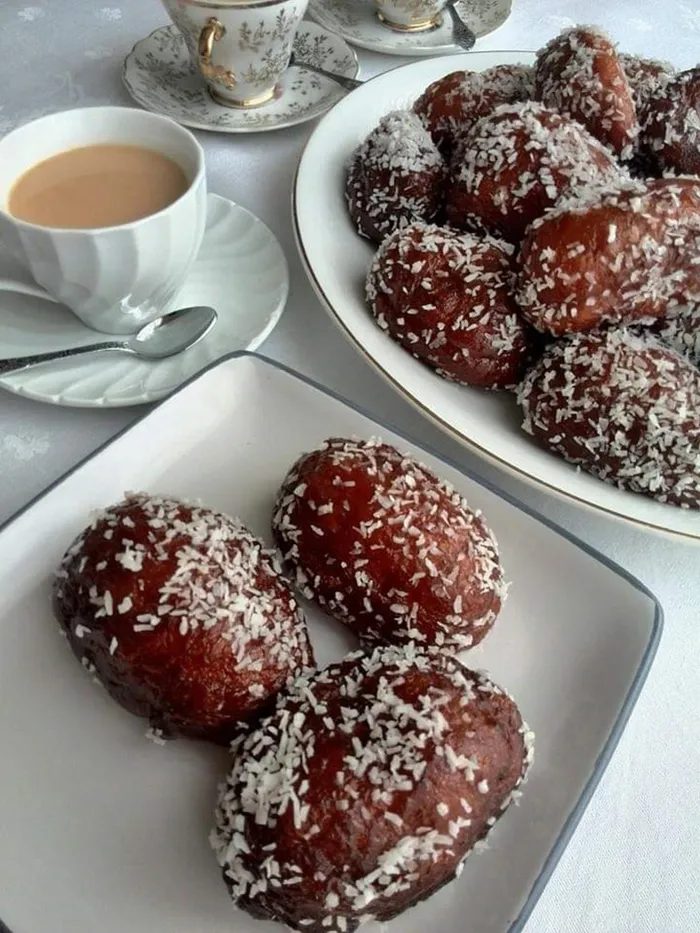
Koesister on a Sunday morning is a Cape Town tradition
Image: Supplied
Terblanche said while many South Africans celebrate with a braai, the Bo-Kaap community often marks the day with communal gatherings, sharing traditional Cape Malay dishes, and reflecting on the importance of preserving their living heritage.
“It's a day to reaffirm their identity and to share their culture with others.”
Faa-iekah Ryland, resident and member of the Bo-Kaap Civic Association, said she was fortunate to have not only grown up in the Bo-Kaap, but also grown up for several years in District Six.
“For the first few years of life, I grew up in District Six. My grandparents' house was one of the last houses to be demolished. We moved to the Bo-Kaap area, and for my 48 years of life, I've lived on the same road, but I've moved four times.
“Bo-Kaap is really unique. It's a very culturally and heritage-rich community, a diverse community, a very proud community, and it's like every child is your child, everybody's family. Summer nights, you’d be sitting on the stoep (porch) and you'd be talking with your neighbours.
“Even now, your neighbours can knock on your door, they can walk in… We still have that type of relationship with your neighbours.”
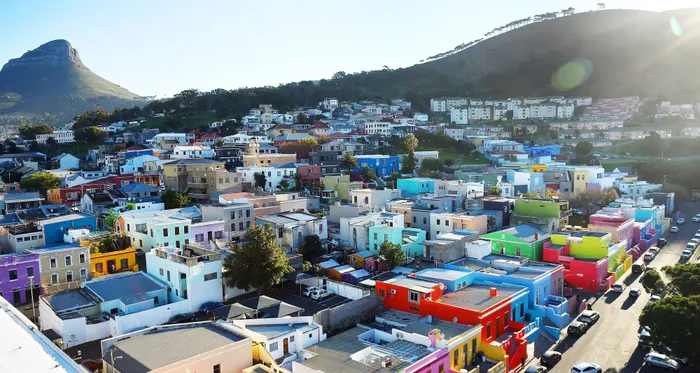
Terblanche said while many South Africans celebrate with a braai, the Bo-Kaap community often marks the day with communal gatherings, sharing traditional Cape Malay dishes, and reflecting on the importance of preserving their living heritage.
Image: Phando Jikelo/Independent Newspapers (Archives)
Ryland, who is also the secretary of several organisations, added that they are also a community rich in rugby stars, with the first Springbok captain of colour Fagmie ‘Fluffy' Solomons, also being her neighbour.
She said that ultimately, they are striving to keep their heritage intact for not only their children but also for future generations.
“We don't want them to lose what we had here, because this is one of the very few originally Islamic communities left, and we don't want them to lose, not just their culture, their heritage, but also that community feeling and pride.
“We are fighting for many issues, so that we can preserve it for our kids, and we just want to leave a legacy that they can continue doing the work that the ones before them have worked so hard for.
“We're fighting gentrification. We're fighting to maintain our homes, we're fighting many things.”
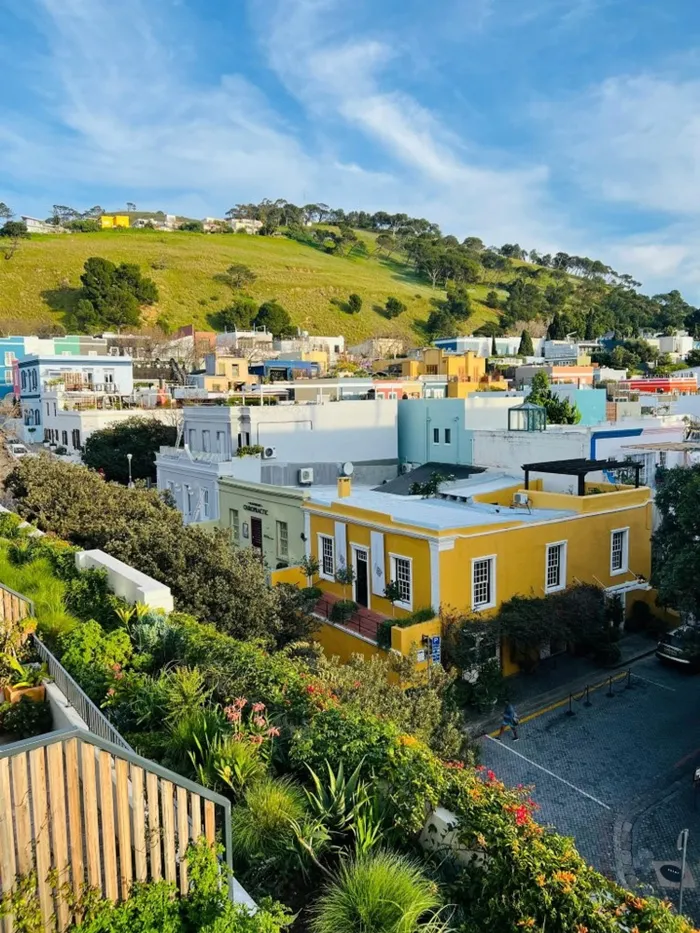
The Bo-Kaap is one of the places to visit in Cape Town.
Image: Supplied
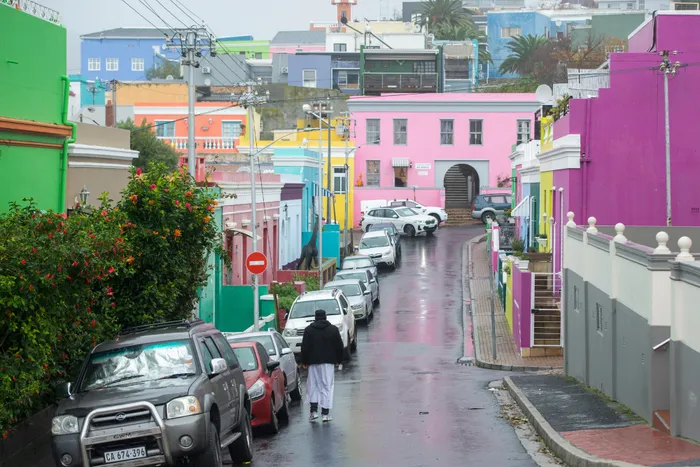
"The area, originally known as the ‘Malay Quarter’, is the oldest surviving residential neighbourhood in Cape Town and is strongly associated with the development of Islam in the Cape," said Sheikh Dawood Terblanche, chairperson of the Bo-Kaap Civic and Ratepayers Association (BKCRA).
Image: Armand Hough / Independent Newspapers
Aside from gentrification, the residents have also highlighted unruly tourists and the exorbitant cost of living.
Terblanche explained that the area's prime location and picturesque aesthetic have made it a magnet for developers and investors, driving up property prices and making it difficult for long-time residents to afford to stay.
Ryland added, “because we are situated in an area that is so in demand, people buy properties here on a day-to-day basis”, but because of the high maintenance and high municipal rates, residents cannot afford at times to maintain their homes.
“What outsiders don't understand about people is that people living in the Bo-Kaap are of the older generations. You've got people who've lived here for 80 years. It's just continuous family homes.
“We've got a lot of old people, and our rates increase by R1,000 at a time every year. I always tell people, yes, we're culturally rich and we are rich in heritage, but the people are not rich. We are rich in other things, but not in monetary value,” Ryland said.
“I have people who live in homes here, where you have 23 family members living in one home. Some of them can't afford the cost of living in the community.”
She said that as ratepayers, they are fighting to better the socio-economic conditions of people, and to improve the lives of those who have spent their lives in the Bo-Kaap.
“A lot of people don't understand the dynamic of a community… We just want to live a normal life, we just want to enjoy living in Bo-Kaap, like we used to.”
Related Topics: